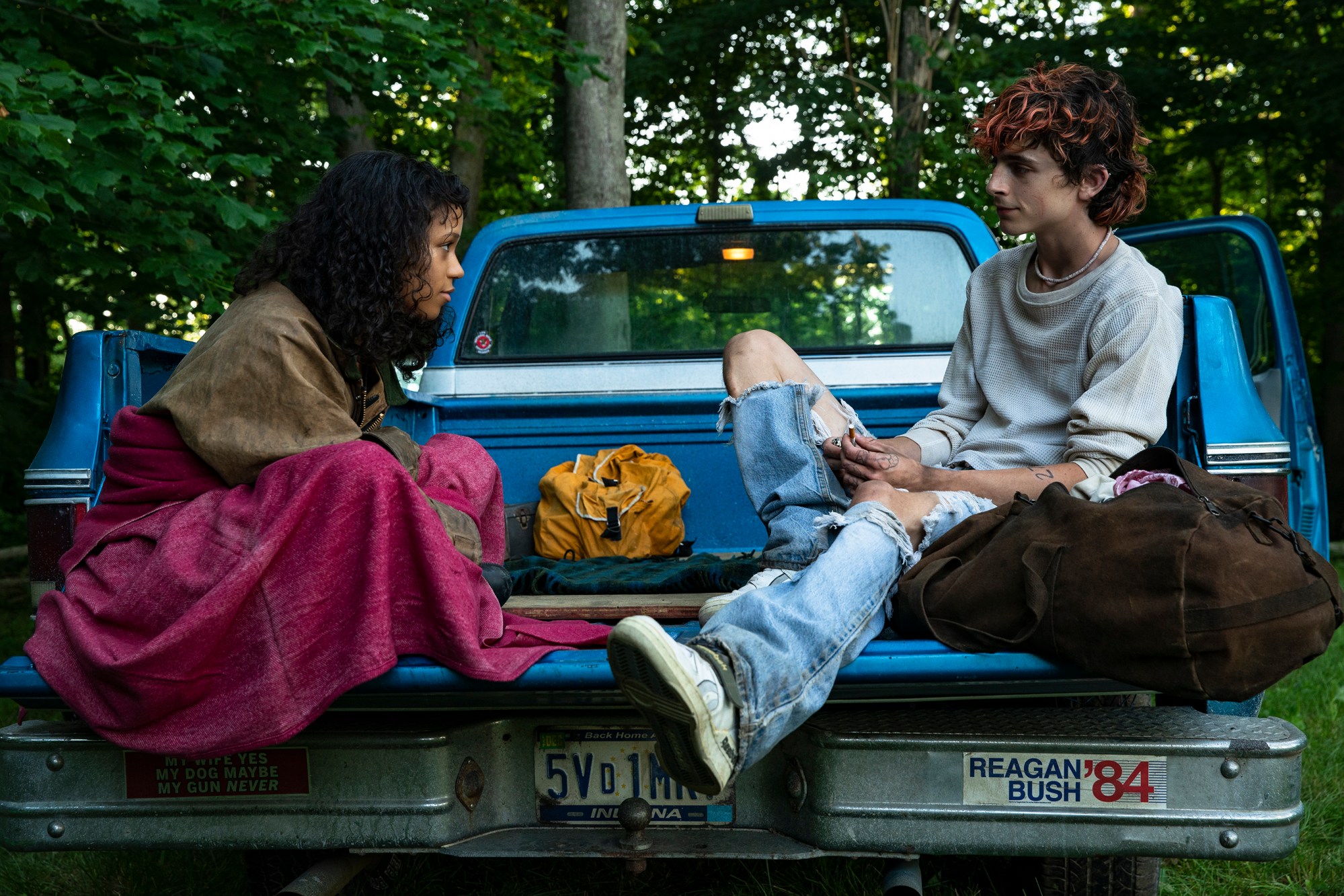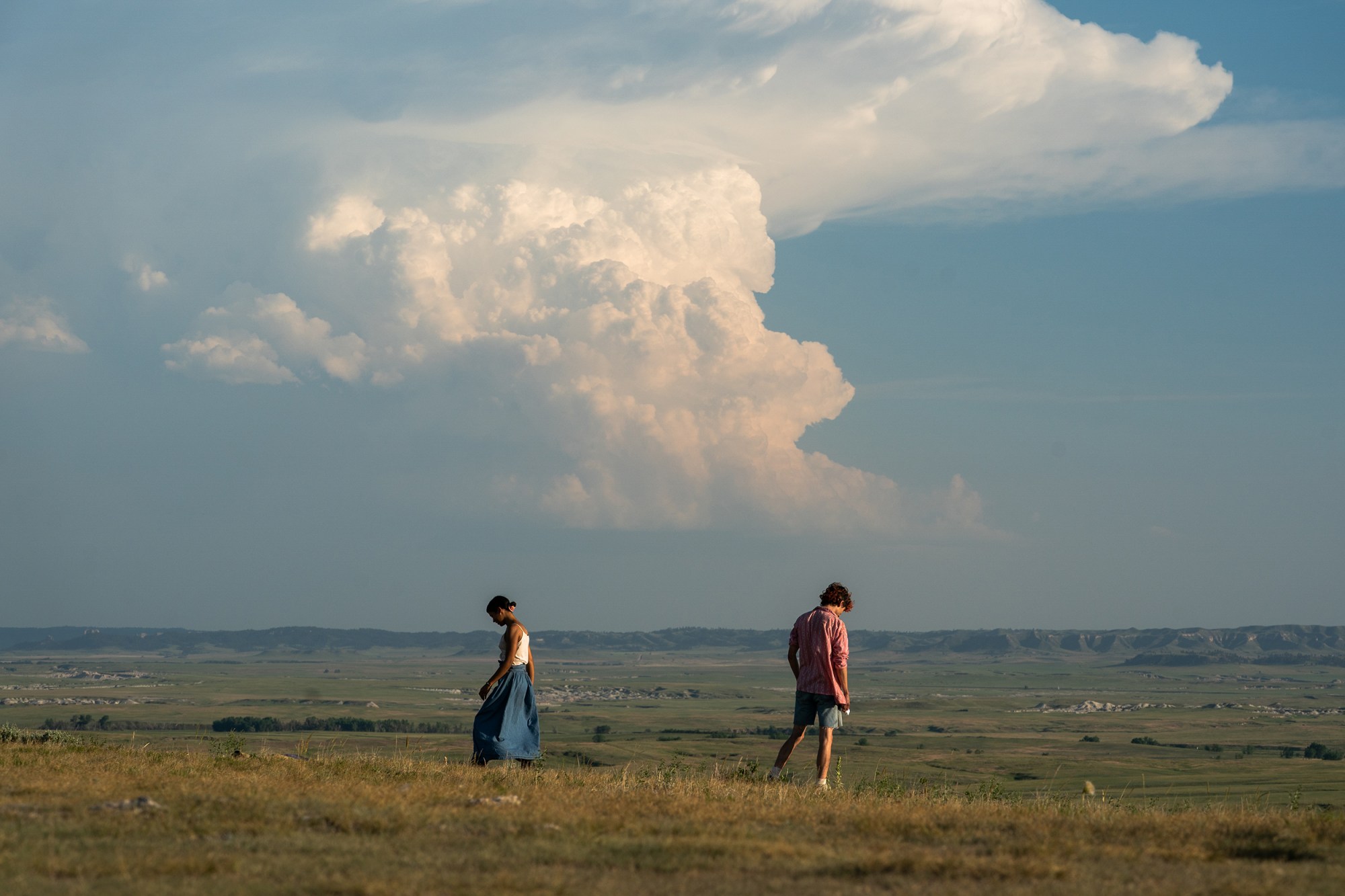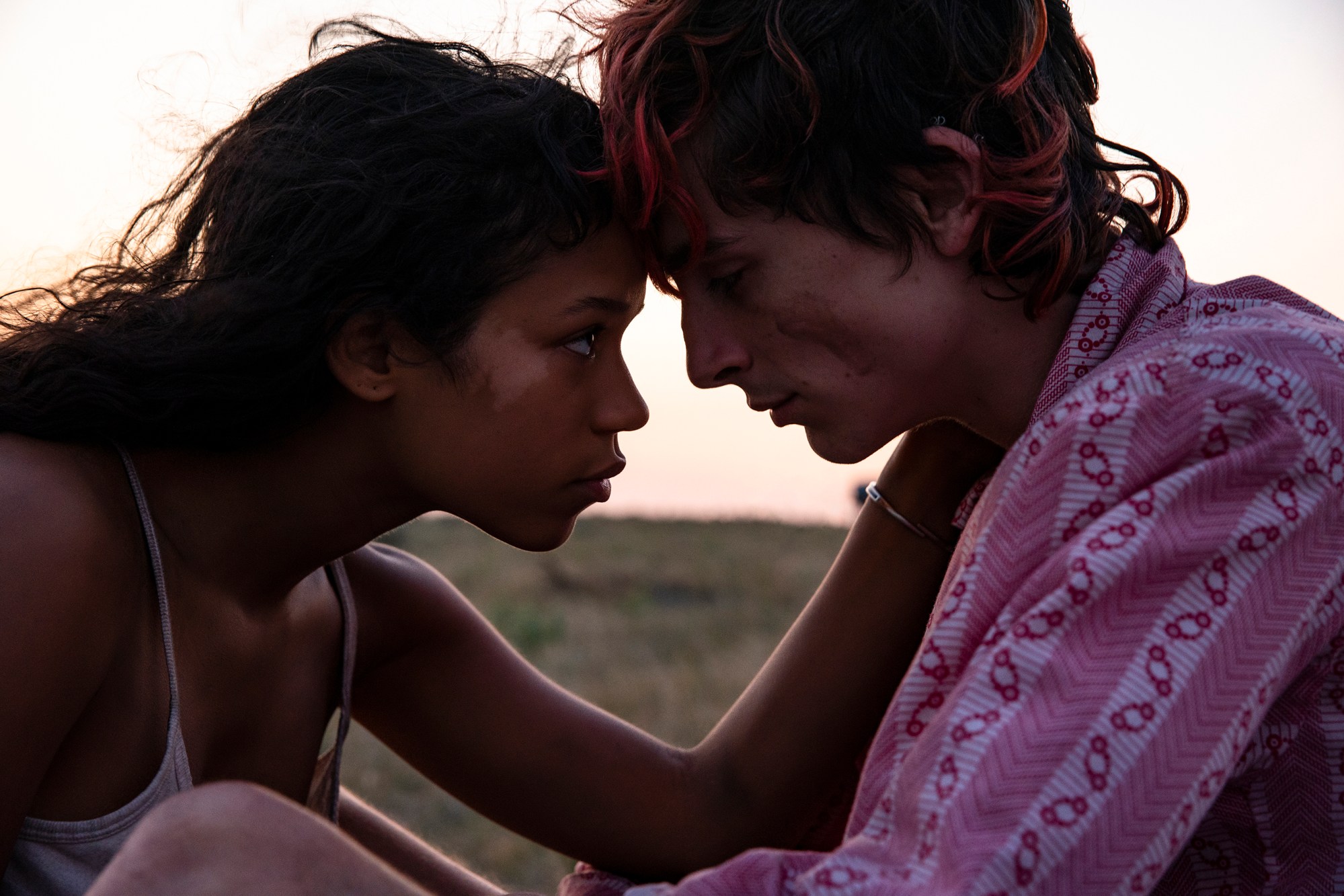This review of Bones and All is from the Venice Film Festival 2022.
For the many of us who have been holding our breath waiting for Luca Guadagnino and Timothée Chalamet to reunite, the time to let go has finally arrived. Bones and All is here, and if Call Me By Your Name stole your heart from its ribcage, this one might just swallow it whole.
A tale of young romance that winds across the quiet, dusty roads of the 80s American Midwest, Bones and All is (also) a story about people compelled to eat other people. An adaptation of Camille DeAngelis’ young adult novel of the same name, Guadagnino’s decidedly more violent foray into a summer love story sees us hit the road with Maren, a stunningly earnest and naturalistic Taylor Russell (the breakout star of Waves).
During a sleepover scene that opens the film, Maren becomes shockingly aware of her previously dormant childhood cannibalistic urges: violently latching her teeth onto a friend’s index finger, and not letting go. After she stumbles back home, wide-eyed and dazed, her father (Moonlight’s André Holland) decides he can’t keep covering his daughter’s bloody trail. He leaves his daughter to fend for herself. The freshly abandoned Maren, carrying a stinging self-knowledge that makes her more vulnerable than ever before, gets on an interstate bus with nothing but a backpack, her birth certificate and a cassette tape her father left as a farewell message. Like any lost child, she tries to chart a course back to a parent who could provide her with answers, and embarks on a search for her mother.

We journey with her through a gentle American wasteland where everything feels sun-weary, abandoned and worn, encountering other people — called “eaters” — like her. Two of them enter her orbit, and though Maren remains cautious, they open her eyes to different ways of living with the unnatural hunger that holds her body captive. The first of them is a much older, weirdly ritualistic cannibal named Sully (a supremely creepy Mark Rylance, delivering a gorgeously layered and unnerving performance that crawls under the skin). The second of them, of course, is Timothée Chalamet’s Lee. Beautiful, angular and dirty, he arrives on screen bathed in the backlight of a convenience store window — and sparks a fluttering, intimate love story between two young cannibals possessed by the same devastating questions.
As far as fictional-afflictions-slash-metaphors go, after all, cannibalism is perhaps the most inherently tragic for human bodies just wanting to be held: how do you cope with what the body wants, when your mind is so awake to how wrong it is? How does one live a life knowing it’s only sustained by the death of others? What happens to our sense of morality, of being human — part of which means desperately needing connection with other people? And does love really mean we can carve out some kind of home from the violence of living?

Bones and All is strangely gentle: its deviant appetite isn’t geared at provocation, but instead patiently invites our human empathy towards even the most ostensibly anti-human things. Luca cloaks a perhaps too-familiar coming-of-age narrative with a transcendental, achingly sun-dappled beauty, lavishing each frame with the same attention that made Call Me By Your Name feel so singular in mood. Uninterested in sensationalising its subject matter, Bones and All instead uses cannibalism as a lens — albeit one drenched in viscera, sticky and luminous with blood — to gaze inwards, finding the animal feelings we all cradle within our chests. Yes, a predatory instinct, but there’s one that’s even more essential to being an animal, especially a human one: our need for connection, for understanding, for wanting to survive not just for ourselves, but for and with those like us. A story about whose flesh — and whose sick, mournful, loving hearts — is incorporated into our own, Bones and All is a dazzling and warm exploration of isolation and intimacy. It’s a gentle nightmare, swollen with romance and tragedy. Watching it leaves a lovely, bloody taste in the mouth.


